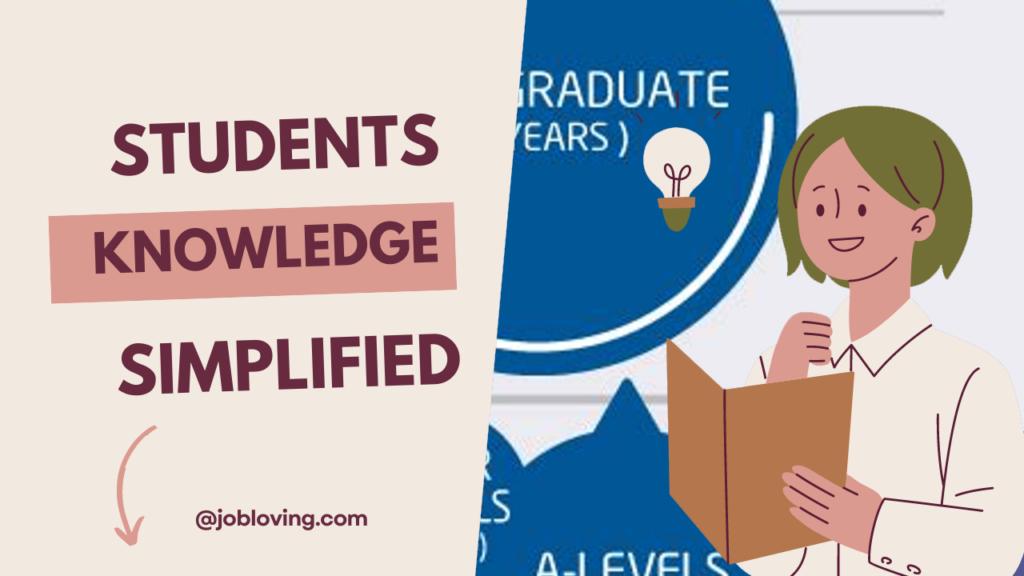Do All UK Students Do A-Levels? Unpacking the Myth
Ah, A-levels! These infamous qualifications are often seen as the golden ticket to university admission in the UK. However, the truth is a bit more nuanced! In this engaging guide, we’ll delve into the world of A-levels and uncover the reality behind whether all UK students pursue them. Spoiler alert: it’s not mandatory!
The Basics of A-Levels: What Are They?
A-levels, or Advanced Level qualifications, are subject-based evaluations that students typically undertake after completing their General Certificate of Secondary Education (GCSEs). They are primarily offered in England, Wales, and Northern Ireland, with students needing to be at least 16 years old before diving into this academic journey. These qualifications were introduced in 1951 and have since evolved to become a staple for university aspirants.
But here’s the kicker: unlike GCSEs, which are mandatory, A-levels are not actually compulsory for all students!
Who Actually Takes A-Levels?
Approximately one-third of students who sit their GCSEs go on to pursue A-levels. It’s an elite club of sorts! Most aspiring university students opt to study A-levels, resulting in them taking between three to four subjects during their first year in sixth form, typically lasting two years. But what about the rest? Let’s explore!
- Vocational Pathways: Not every student feels the pressure or desirability to pursue A-levels. Many take vocational qualifications, like BTECs or T-levels, especially if they struggle with traditional subjects.
- Alternative Qualifications: In Scotland, students take National 5s and subsequently Highers instead of GCSEs and A-levels, indicating varied educational pathways across the UK.
- Career Aspirations: Not all career paths require A-levels, especially if students are eyeing apprenticeships or vocational training, leading them down different but equally viable roads.
The Flexibility of A-Levels
A-levels offer students a flexible approach to education. Unlike other qualifications, students can combine subjects freely according to their interests and aspirations. This flexibility can have a significant influence on their future academic and career trajectories.
Let’s break down some of the unique features:
- A-level subjects range from sciences and humanities to languages and arts, catering to a wide array of student interests. Students truly get to specialize!
- A-levels are comprised of two parts: AS-levels (Advanced Subsidiary) and A2-levels. Though, post-2016, AS-levels have become separate qualifications and cannot be used for university admission.
- The grading system spans from A*, the top mark, down to E. An astute student needs at least 40% to snag an E, and they can retake A-levels as many times as necessary!
University Admissions and A-Levels
When it comes time to apply for universities, A-levels often reign supreme. Universities typically base their offers on the grades of three A-level subjects, significantly shaping students’ choices. In fact, achieving a certain level is often a prerequisite for entering healthcare professions, engineering, humanities, and the list goes on!
However: the competitive nature of A-levels can spur students to focus solely on specific subjects to enhance their chances of admission—sometimes to the detriment of their overall education.
The Global Perspective: A-Levels Beyond the UK
A-levels aren’t just confined to the UK; they are recognized internationally. Countries like Nepal and Hong Kong have adopted A-levels as alternatives for university admissions, while in Singapore, A-levels are viewed as particularly challenging. This international recognition of A-levels showcases their importance in shaping global academic standards.
- A-levels equate to ten US college credits, which means they facilitate a three-year Bachelor’s degree in the UK.
- Many international schools offer A-levels, further expanding their influence and appeal across different cultures and educational contexts.
The Upsides and Downsides of A-Levels
Much like anything education-related, A-levels come with their fair share of pros and cons. Here’s a peek at both sides:
Pros:
- A-levels provide students with a deeper grasp of subjects, allowing them to specialize and hone in on their strengths.
- They offer a benchmark to compare academic performance on a global scale, enhancing opportunities for international study.
- Students who perform well in timed exams and can master intensive revision strategies can thrive in A-levels.
Cons:
- The overwhelming amount of exam pressure can lead to mental health challenges, as many students find A-levels too intense.
- For students struggling with exam settings, the heavy emphasis on final written exams may not suit their learning styles.
- Employers often prioritize GCSEs over A-levels, which can lead students questioning the ultimate utility of their efforts.
Are There Alternatives?
Absolutely! The UK education landscape is increasingly showcasing options beyond A-levels:
- Vocational Qualifications: BTECs, T-levels, and other technical qualifications serve as viable routes for students keen on practical experience and skills.
- Apprenticeships: Apprenticeships combine on-the-job training with classroom learning, particularly attractive for students eager to jump straight into the workforce.
- Other State Assessments: In Scotland, the Scottish Qualification Authority oversees National courses, leading to Highers—a completely different route altogether.
The Future of A-Levels
So, what does the future hold for A-levels? Considering the increasing variety of qualifications available, it’s clear that A-levels are just one of many options for post-GCSE students. With the introduction of T-levels and evolving learner needs, the educational landscape is expanding. Students now have more pathways than ever, allowing them to take charge of their education and choose routes that truly resonate with their aspirations.
In Conclusion: While A-levels serve as a significant gateway for many to higher education, they are by no means a universally required qualification for all UK students. As the education system continues to evolve, we can expect to see an increasingly diverse array of choices tailored to students’ needs, marking a shift towards a more inclusive approach to education.
Whether you’re an A-level devotee, a vocational enthusiast, or somewhere in between, remember this: education is as unique as you are! Make choices that align with your passion, strengths, and future aspirations—you can pave your own way. Happy exploring!

